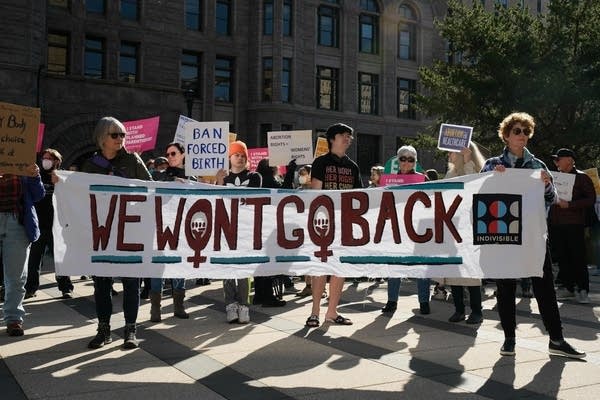FAQ: What Minnesota and neighboring states could do now that Roe is overturned

Abortion rights activists hold a sign, 'We Won't Go back' at a protest in Minnesota.
Tim Evans for MPR News
Go Deeper.
Create an account or log in to save stories.
Like this?
Thanks for liking this story! We have added it to a list of your favorite stories.


